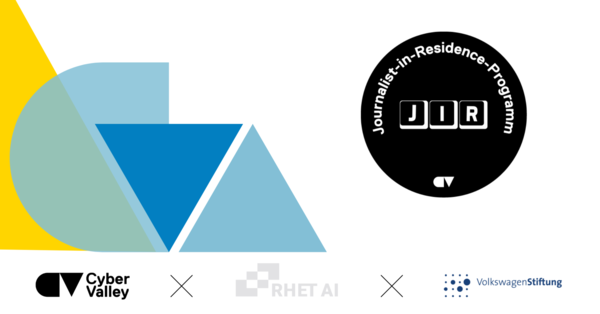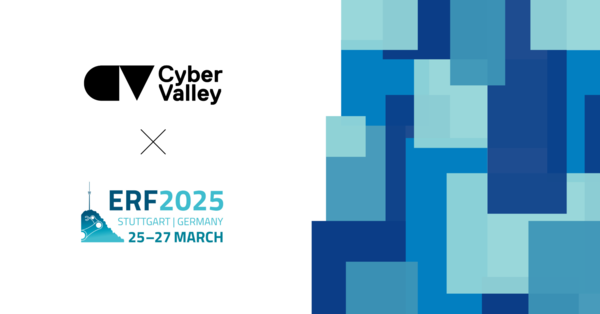Welcome, Julia Merlot!
Science journalist is new journalist-in-residence

Intelligent systems could help prevent or better manage such escalations in the future. This raises not only technical but also legal, ethical, and societal issues, such as data protection and the nature and capabilities of artificial intelligence (AI) applications.
During her three-month stay in Tübingen and Stuttgart, Julia Merlot, the new Cyber Valley Journalist-in-Residence, will focus on how intelligent systems can find their way into practice for better pandemic management. Her focus will be on the perspective of society and users: Which applications are desired and find acceptance, which do not? The science editor of the news magazine “Der Spiegel” convinced the independent jury with her application and will pursue this question from April to July 2022.
“I’m interested in what knowledge exists in society, in health departments, clinics and in politics about possible AI applications in pandemic management,” says Merlot. “How are different application areas perceived and evaluated? From chatbots for contact tracing, to systems that suggest treatments for patients or the scope of protective measures.”
Merlot aims to hear the perspectives of researchers, users, and citizens through a variety of conversation formats and workshops. She will present herself and her project in a public lecture on May 9, 2022 at 20:00 CEST. This talk will be streamed live and for free on the official Cyber Valley YouTube channel.
About Julia Merlot:
Julia Merlot studied science journalism in Darmstadt and has been an editor in the science department at the news magazine “Der Spiegel” (formerly “Spiegel Online”) in Hamburg for eight years. Previously, she wrote for “Zeit Wissen” and “Geo Wissen,” among others. Her thematic focus is on the life sciences and, with the onset of the corona pandemic, she focused significantly on the spread of the virus and its medical consequences. Merlot reports in a variety of article formats, in videos and podcasts, and is co-author of books including “Lockdown: Wie Deutschland in der Coronakrise knapp der Katastrophe entkam” (“Lockdown: How Germany narrowly escaped catastrophe in the Corona crisis”) and “Mythos oder Medizin: Brauchen Wunden Luft oder Pflaster?” (“Myth or medicine: Do wounds need air or band-aids?”).
About the Cyber Valley Journalist-in-Residence Program:
In a three- to six-month residency, a science journalist on leave for this program explores how AI applications can be used meaningfully for good journalism. Or how journalists can report appropriately and evidence-based on the technologies behind the buzzword “artificial intelligence.” The journalist selected by an independent jury will determine the topic and question themselves. The program is a collaboration with the Center for Rhetorical Science Communication Research on Artificial Intelligence (RHET AI Center). It is funded by the VolkswagenFoundation.
Related Articles

Exploring Emotional Interactions with AI

